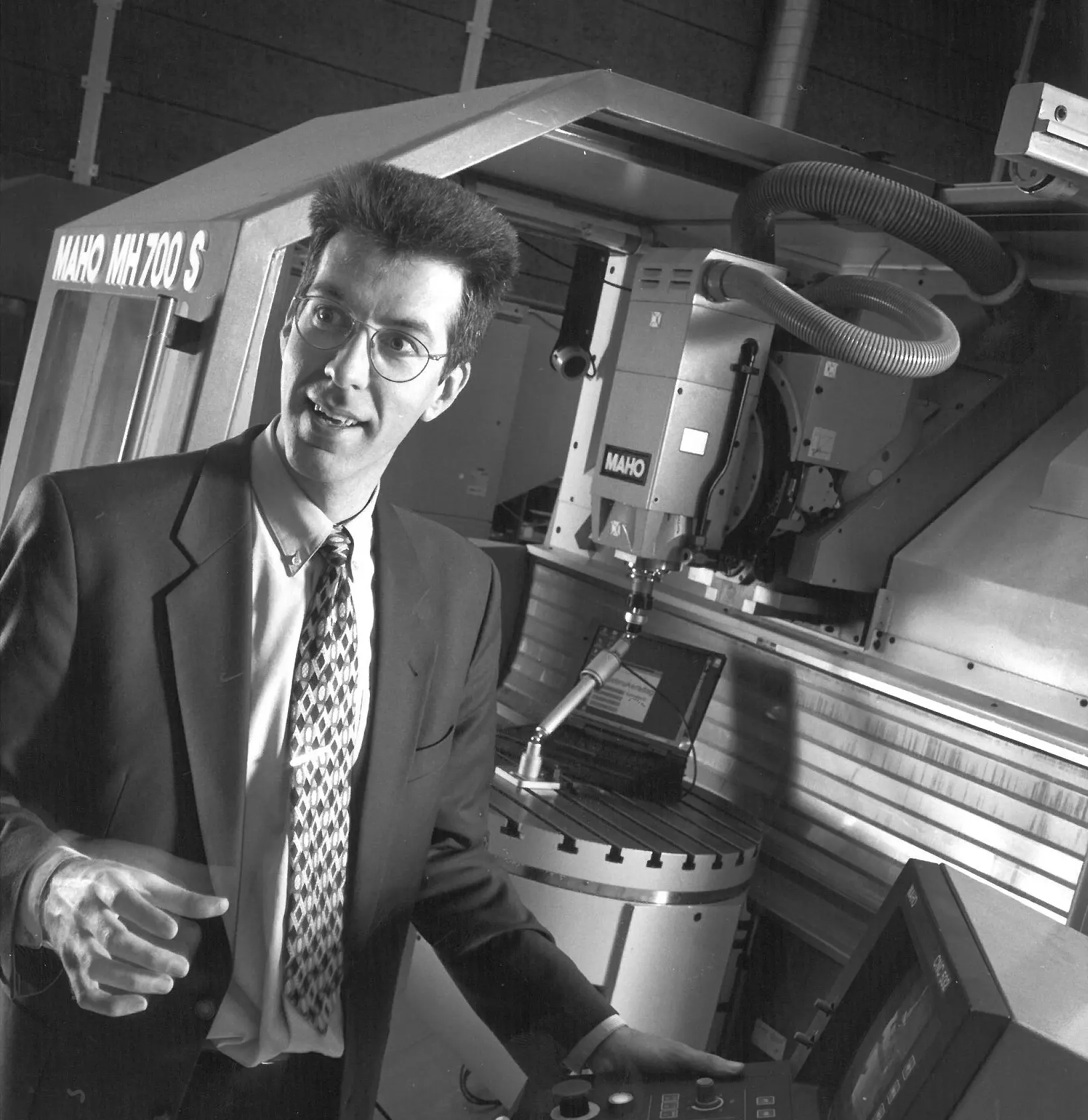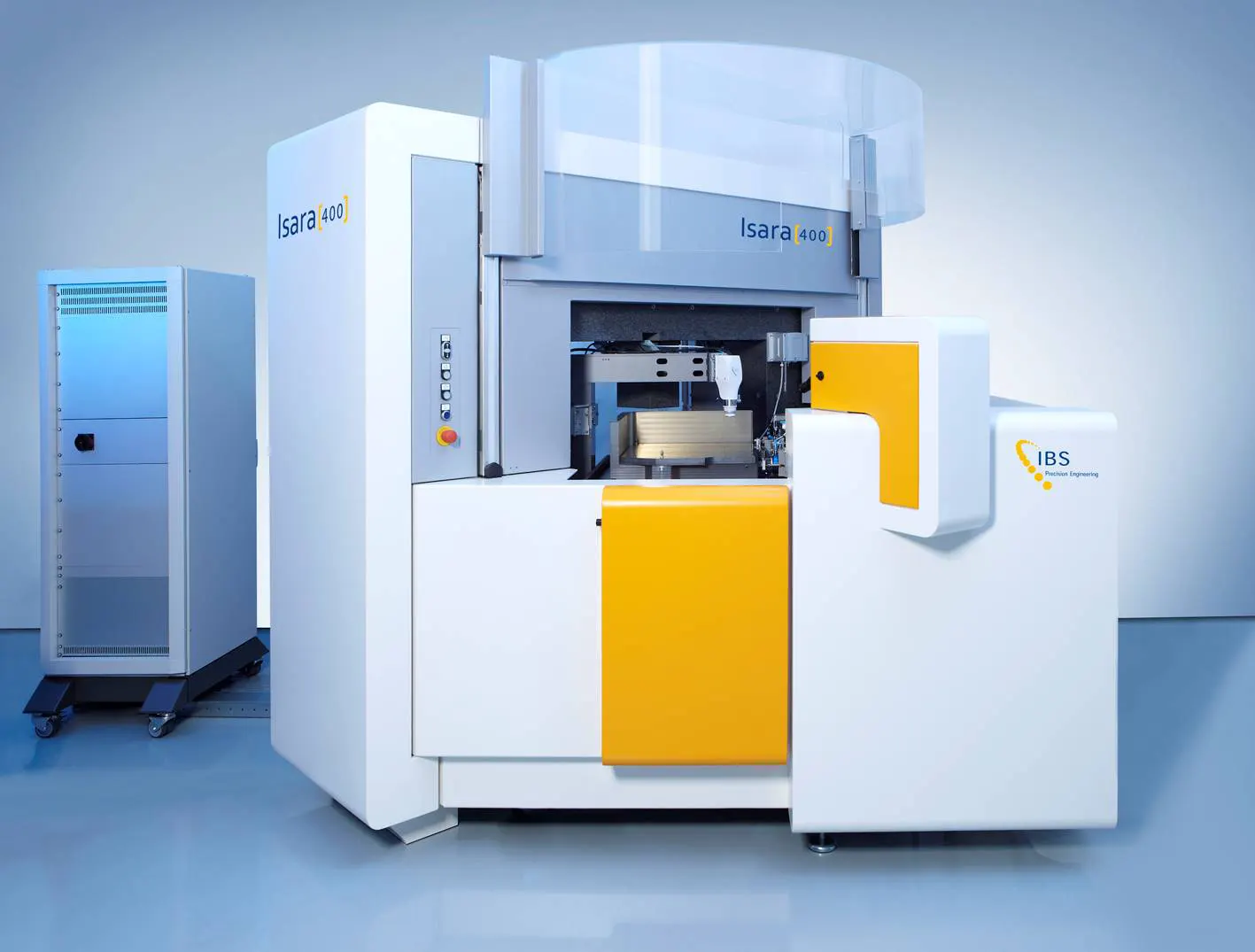
In 1993 Henny Spaan started a small precision engineering company in Eindhoven, the Netherlands, with a big mission: to create measurement solutions which would help companies and research institutes achieve the precision they needed in their most challenging machines or processes.
Henny was only 25 years old and yet to finish his PhD in Mechanical Engineering, but with just a table and phone at the University incubation centre, and a big shot of ambition, he set to it. He started with software based solutions and won his first contract in the Netherlands with international company Oce – where he created software which improved the accuracy of cylinders manufactured for large printing machines. By customer two he went international, and was improving the rollers for the paper industry.
With his PhD gained in 1995, IBS began to recruit employees and by 1998 the team had won the most innovative product at the TechniShow in Utrecht for their software. However IBS was already developing as a full solution provider, adding measurement modules and machines to their portfolio. The late 90s saw solutions developed for the disk drive industry, enhancing the spindle accuracy of the mastering machines, to support improvements in the storage density. Today more than 90% of disks produced world-wide are produced on machines employing this technology. For the pick and place industry, calibration machines were developed for the vision systems they employed. For CERN, software was developed for the assembly machine for the ALICE detector.
“Without precision measurement, no precision design can be made real." Rien Koster Award jury in their accreditation to 2013 winner, Henny Spaan.
As the new millennium began, IBS expanded with offices in France and then Germany. For the semicon industry modules were developed not only to measure the product but as precision parts within the product itself. Partnerships were established with volume manufacturers to enable IBS precision engineering designs to be supplied to the end customer in the most effective way including training and tool making. A patent in 2003 for the measurement of machine tools led IBS to develop a portfolio of products which are today transforming the way machine calibration is implemented for the aviation and medical industries for the delivery of complex freeform parts.
In 2010 IBS Precision Engineering was responsible for the ISARA 400, recognized to be the within the top three most accurate CMMs in the world. It has a traceable measurement uncertainty of 11 nm and has been engaged in multiple NMI led round-robin activities to establish norms for freeform measurement. IBS is currently engaged in the next generation of this machine, to measure mirrors for the semicon industry with accuracies down to 10s of picometers.

In 2013, Henny Spaan received the Rien Koster Award for his significant contribution to the field of mechatronics and precision technology in the Netherlands. In 2015, IBS together with ASML were founding partners responsible for the launch of the Advanced Thermal Control Consortium; a first of its kind industrial body funding next generation modeling, simulation and control technologies for precision systems. In 2016, CERN awarded IBS with the largest order ever given to a Dutch company for the development & realization of the next generation ALICE detector assembly machines. Machines have since been shipped to 8 different locations globally.
Today, more than 30 years on from his initial vision, IBS exports to 36 countries world-wide. In 2018 IBS expanded again, this time with an office in the UK. Customers include Rolls Royce, Mercedes Benz, Johnson & Johnson, Applied Materials and the ESRF. But also smaller companies and research groups whose vision, like Henny’s all those years ago, demands the ultimate in precision engineering and measurement.